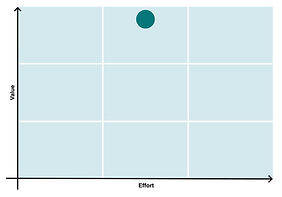Growth Hacking
Leverage our curated growth hacks for software development. Implementing these proven tactics will increase your follower base, brand recognition, and foster a loyal community of users who actively promote your software.
Available Patterns:
83
Data-Driven Growth

Multivariate Testing
Implementing multivariate testing involves experimenting with multiple variables simultaneously to optimize conversion rates on digital platforms such as websites, mobile apps, or email campaigns. By testing different combinations of elements, businesses can identify the most effective design, content, and functionality to maximize conversions.
Data-Driven Growth

Additional Market Research
Conducting market research involves gathering and analyzing data to understand market dynamics, consumer behavior, and industry trends, with the aim of identifying new opportunities and niches for business growth. Market research encompasses a variety of methodologies, including surveys, interviews, competitor analysis, and trend tracking.
Data-Driven Growth

Surveys & Interviews
Conducting user surveys and interviews involves gathering qualitative insights directly from users about their experiences, preferences, and needs related to a software product. Surveys collect structured feedback through questionnaires, while interviews offer opportunities for in-depth conversations and exploration of user perspectives.
Data-Driven Growth

Update your Competitor Data
Analyzing competitor data involves gathering and evaluating information about competitors' strategies, products, and performance to identify their strengths and weaknesses relative to your own business. This analysis provides valuable insights for strategic decision-making and competitive positioning.
Data-Driven Growth

Machine Learning Algorithms
Implementing machine learning algorithms involves utilizing advanced computational models to analyze user data and dynamically personalize the user experience. By leveraging machine learning techniques, businesses can tailor content, recommendations, and interactions to individual user preferences, behaviors, and characteristics.
Data-Driven Growth

Heatmaps & Session Recordings
Implementing heatmaps and session recordings involves using visualization tools to track and display user interactions with a software interface. Heatmaps visualize user clicks, scrolls, and mouse movements, while session recordings capture and replay user sessions, providing valuable insights into user behavior, preferences, and pain points.